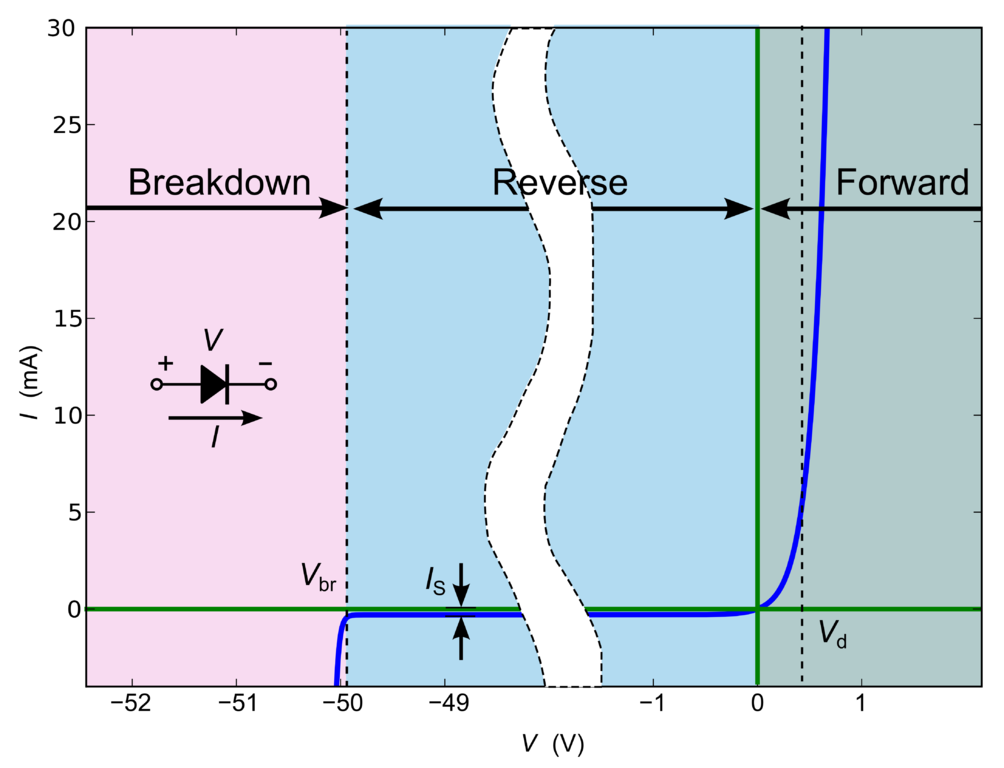Diodes
A diode is semiconductor device consisting of a PN-junction. It circuits it works like a current valve in which the current is only flowing if the external diode voltage is in forward direction, aka forward (voltage) bias. In the reverse bias mode the diode blocks and (almost) no current can flow.
The diode current dependance on diode voltage can be described in the (simplifying) Shockley diode equation (not describing the diode breakdown):
$ I_D(V_D) = I_S (e^{V_D/(n V_T)} -1) $
$n$ is the ideality factor.
$ V_T = kT/q $
$T$: PN junction temperature, $q$: elementary charge, $k$: Boltzmann constant.
 |
| Fig.: I–V (current vs. voltage) characteristics of a p–n junction diode (Wikipedia) |
Intro to semiconductors | Class 12 (India) | Physics | Khan Academy
The Khan Academy India provides an excellent and very clear introduction on highschool level.
Have a look at the YT playlist on 
A few example videos from the tutorial series:
| Intrinsic semiconductors. Link with full playlist |
| The PN junction. Link with full playlist |
Semiconductor Physics by Jordan Edmunds
To fully understand PN-junction one has to study the Fermi charge distribution function which is a result of the statistical theory of quantum mechanics. This is beyond the scope of the course Phy1 / EEng.
Anyway, if you want to dive deeper have a look at the full YT playlist of Jordan Edmunds on Semiconductor Physics (challenging!).
| PN Junction Introduction by Jordan Edmunds |
| PN Junction Band Diagram by Jordan Edmunds |